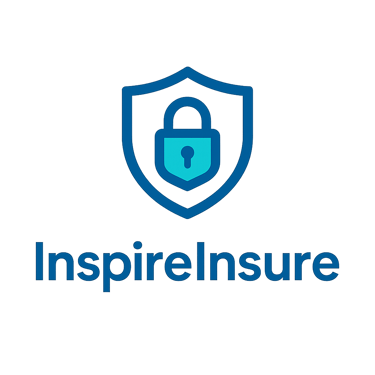“PCI-DSS Compliance for Freelancers and Shopify Sellers: Secure Payment Processing in 2025”
Are you a freelancer or small e-commerce seller accepting online payments? Learn what PCI-DSS compliance means in 2025, who it affects, and how to stay secure without getting overwhelmed. Real examples, tools, and insurance tips included.
COMPLIANCE & LEGAL
Written by InspireInsure | Compliance & Legal for Freelancers and Microbusinesses
8/12/20254 min read
PCI-DSS Compliance for Freelancers and Shopify Sellers: Secure Payment Processing in 2025
In the world of digital payments, convenience isn’t free. Behind every “Buy Now” button lies a set of rules designed to protect sensitive customer data—and if you’re a freelancer, Shopify store owner, or small agency accepting card payments, those rules apply to you.
Welcome to PCI-DSS.
Whether you sell digital products through Stripe, build e-commerce stores, or accept invoice payments by credit card, understanding PCI compliance isn’t optional. It’s a legal and contractual requirement—and skipping it could cost you clients, payment access, or worse, subject you to fines and fraud liability.
In this guide, we break PCI-DSS down in plain English, explain who it affects in 2025, and share tools, templates, and insurance options to keep your business protected.
What is PCI-DSS, and Why Should You Care?
PCI-DSS (Payment Card Industry Data Security Standard) is a global set of rules developed by major credit card brands (Visa, MasterCard, Amex, etc.). It outlines how businesses must store, process, and transmit credit card information securely.
Even though it’s not a law, PCI-DSS is enforced through contracts with payment processors like Stripe, PayPal, or Shopify Payments. That means if you process credit cards—even indirectly—you are responsible for some level of PCI compliance.
Who Must Comply?
Freelancers accepting credit card payments via Stripe, Square, PayPal, etc.
Shopify or WooCommerce store owners who collect customer payment info
Web developers or marketers building/maintaining checkout pages
Virtual assistants or agencies managing online transactions


🔍 Fact:
If a freelancer gets access to cardholder data (e.g., custom checkout flows), they could be held liable under PCI-DSS—even if they don’t run the actual store.
What Happens If You Ignore PCI-DSS?
Account bans: Payment processors can freeze your account for violations
Client loss: Agencies and larger clients often ask for PCI compliance proof
Fines: Ranging from $5,000 to $100,000/month in case of breach
Data breaches: Liability for leaked cardholder info, fraud, and legal claims
If your client is in the healthcare space, assume HIPAA applies until proven otherwise.
How Insurance Can Help with PCI Breaches
Even with best practices, mistakes happen. If a breach occurs under your watch or your client’s platform, cyber liability insurance can save your finances.
What Cyber Insurance Covers:
Regulatory fines (if allowed in your state)
Legal defense and breach investigation
Notifying affected customers
Credit monitoring and PR cleanup
🧾 Freelancers with Tech E&O + Cyber policies often have PCI coverage built-in.
If you work with e-commerce, client data, or custom checkout design, consider adding PCI coverage when buying a policy.
PCI-DSS for Solopreneurs: The Simple Version
PCI-DSS has 12 main requirements across areas like data encryption, firewall setup, password hygiene, and access control. But for most small businesses using third-party processors (Stripe, PayPal), your burden is smaller.
Here’s what you likely need to do in 2025:
Use a PCI-Compliant Platform
Choose providers that are Level 1 PCI-DSS compliant—like:
Stripe
Shopify Payments
PayPal
Square
Braintree
These platforms offload most technical compliance responsibilities.
Use a PCI-Compliant Platform
Never save credit card info manually or in tools like Google Sheets, emails, or spreadsheets.
Use HTTPS & SSL on Your Website
Secure all web pages—especially checkouts—with SSL certificates. Google also flags unsecured pages.
Complete an Annual PCI Self-Assessment Questionnaire (SAQ)
Most freelancers only need the SAQ A or A-EP forms, depending on how they integrate payments. Stripe or Shopify may send reminders for this.
Ensure Strong Passwords and Two-Factor Authentication (2FA)
Keep your Shopify, Stripe, WordPress, and email accounts secure. Weak logins = big PCI violations.
PCI Compliance Tools for Freelancers & Sellers
Here are tools that make your PCI-DSS journey easier:
Tool Purpose Free Option?
Free Option
SecurityMetrics SAQ Tool
Tool
Purpose
Scans site for PCI vulnerabilities
✅
Qualys PCI Scanner
Helps fill out SAQ forms
✅ (limited)
Let's Encrypt
Free SSL certificates
✅
Stripe Radar
✅ (with Stripe)
Fraud detection + PCI built-in
Real-World Freelancer Scenario
Arjun, a freelance web developer, helped a client set up a custom Shopify checkout. A malicious script leaked credit card data due to a plugin vulnerability. The payment processor froze the store, and Arjun was blamed.
✅ Luckily, Arjun had freelancer Tech E&O + cyber liability insurance that covered breach response and legal fees. He also documented PCI compliance steps he took—protecting his reputation and wallet.
Final Thoughts: Make PCI Compliance Part of Your Routine
Being PCI-DSS compliant doesn’t have to be a nightmare. As a solopreneur, you just need to choose the right tools, follow basic data protection practices, and review your setup annually.
That one-time checklist can save you from financial headaches, client loss, and processor shutdowns.
Run a smart, secure, and client-ready business. PCI compliance helps you get there.
🔐 Ready to audit your setup? Download our free PCI-DSS Freelancer Checklist now.
❓ HIPAA Compliance for Freelancers — FAQ
1. Do I need to worry about PCI-DSS if I use Stripe or PayPal?
Yes, but your responsibility is reduced. You still must ensure your setup doesn’t expose cardholder data and complete annual SAQ forms.
2. Is PCI-DSS required by law in the U.S.?
Not directly. But it’s enforced via payment processor agreements. Violating PCI terms can result in account termination and penalties.
3. Can I handle compliance myself, or do I need a lawyer?
Most freelancers can manage it themselves with basic tools and self-assessment. You don’t need a lawyer unless you're building custom card-handling systems.
4. What happens if my website gets hacked?
If cardholder data is involved, your PCI status will be reviewed. Without cyber insurance or documentation, you may be fully liable.
5. How often do I need to review PCI compliance?
Annually—usually via an SAQ. Also, review it anytime you change payment methods or web platforms.
Insurance
Tailored cyber and business insurance for freelancers.
Support
Contact
info@inspireinsure.com
© 2025. All rights reserved.
